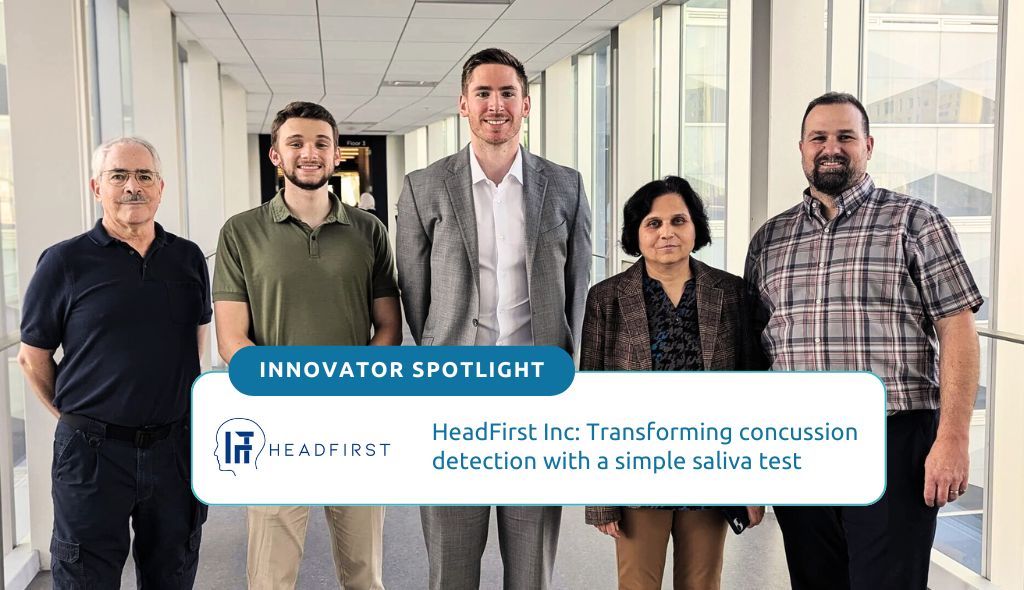This article was originally shared by the University of Waterloo on November 18, 2024. Read the original article here. Image courtesy: University of Waterloo
HeadFirst Inc., a Waterloo-based biotechnology startup and Innovation Factory client, is revolutionizing concussion detection with a rapid saliva-based test. Co-founded by former varsity hockey player Andrew Cordssen-David and biomedical researcher Dr. Shazia Tanvir at the University of Waterloo, the company aims to address the limitations of traditional concussion tests. These conventional methods are often subjective, enabling athletes to downplay symptoms and risking undiagnosed injuries.
Addressing a critical gap in concussion testing
Co-founded by former varsity hockey player Andrew Cordssen-David and biomedical researcher Dr. Shazia Tanvir, the company is tackling the shortcomings of existing protocols with a quick, objective way to identify concussions. Inspired by his own experiences with head injuries, Cordssen-David recognized the need for a more accurate and accessible diagnostic tool.
The saliva-based test detects biomarkers released by the brain after a traumatic injury. These biomarkers pass through the blood-brain barrier and into saliva, enabling the test to deliver results within minutes. Similar to a COVID-19 saliva test, two lines on the device indicate a positive result, while one line signals a negative result.
“What’s concerning is that up to half of current concussion tests fail to detect concussions,” Cordssen-David explained. “Our saliva-based test provides an objective alternative, designed to protect athletes and ensure injuries are treated appropriately.”
The test is non-invasive and can be administered on the sidelines of sports events, making it a practical solution for high-impact sports like hockey, football, and boxing. By identifying concussions early, athletes can avoid premature returns to play, reducing the risks of severe neurological conditions later in life.
Collaborative development at the University of Waterloo
HeadFirst has received significant support from the University of Waterloo’s Velocity incubator, which provides funding, lab space, and business mentorship. The team, including engineering experts and researchers, Pilot trials are underway with varsity athletes to validate the test, which could soon become a game-changer for sports organizations, athletic departments, and healthcare facilities.
Collaboration with experts from Waterloo’s Faculty of Engineering, including chemical engineering professors Marc Aucoin and Bill Anderson, has refined the lateral flow assay technology for accuracy and ease of use. Pilot trials with varsity athletes, including the men’s hockey team, are underway to establish baseline readings and refine the device for accuracy.
Dr. Aucoin, a youth hockey coach, highlighted the test’s potential impact, stating, “Having an accessible and reliable concussion test could significantly improve safety and long-term health for athletes of all levels.”
Beyond sports, HeadFirst’s test has broader implications for improving concussion management and reducing the risks of long-term neurological conditions. Untreated concussions can lead to serious neurological conditions, such as chronic traumatic encephalopathy, Parkinson’s, or dementia. By preventing premature returns to play and enabling timely treatment, the test has the potential to safeguard the long-term health of athletes.
As HeadFirst works toward regulatory approval from Health Canada and the FDA, its cutting-edge technology signals a new era in protecting brain health for athletes and beyond.






